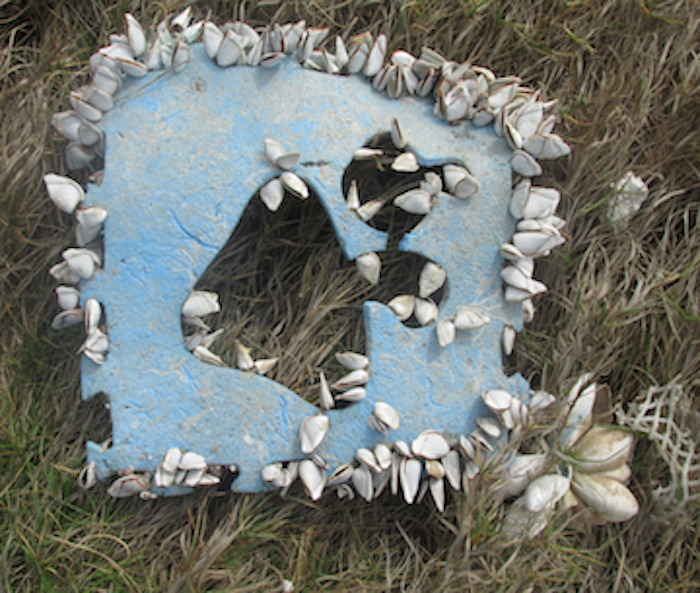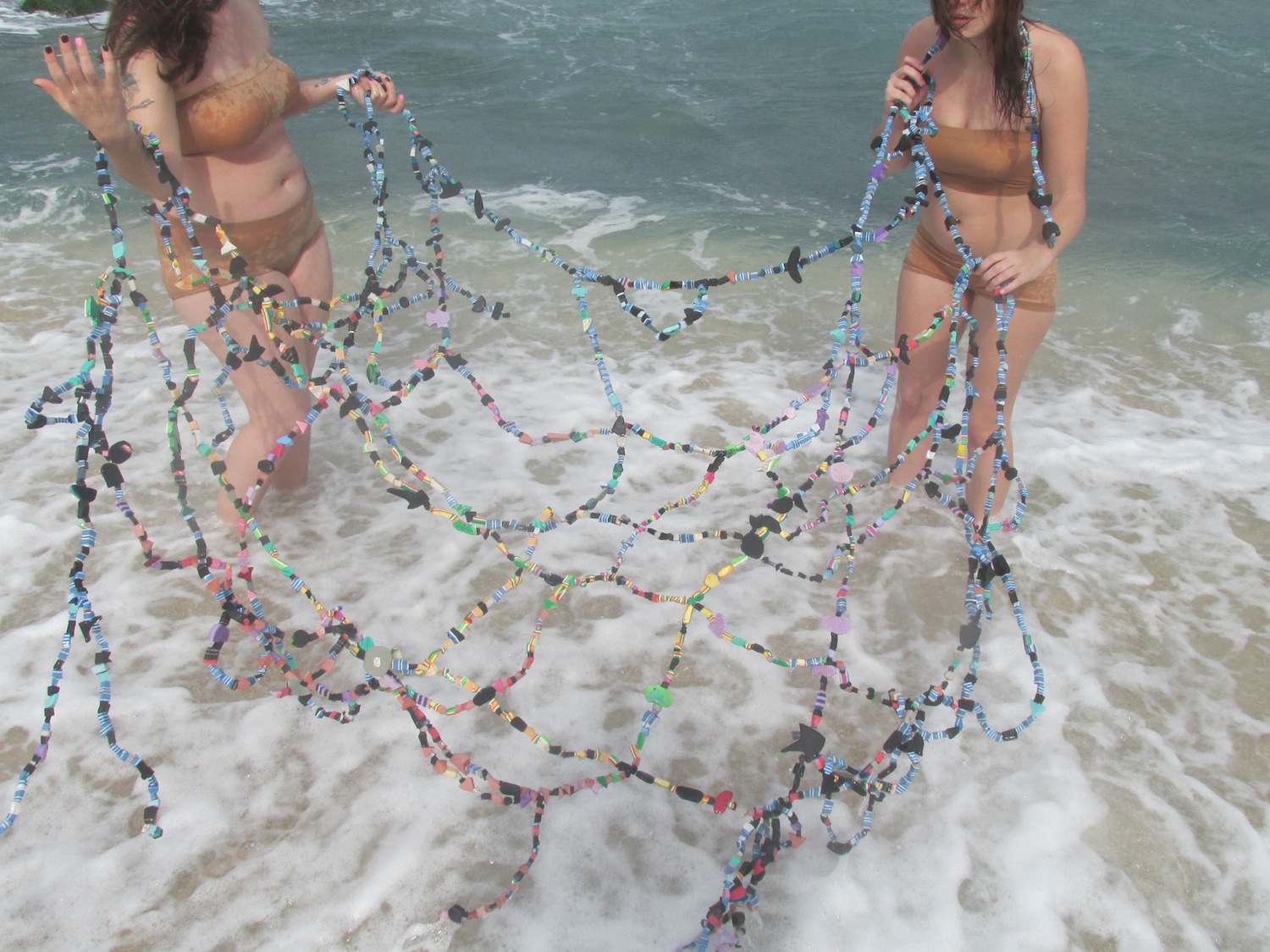In 2014 Sarah Julig spent a year on a self-directed residency on the archipelago of Penghu off the coast of Taiwan. She was aware of ocean pollution before moving there, but this was my first time seeing it firsthand. The swimming beaches were cleaned, but many remote beaches were covered in endless miles of a wide variety of trash, in various states of decomposition. Factories in China that produced flip-flops threw whole bales of off-cuts into the ocean, and she found many colourful piles of foam and plastic slowly turning into toxic dust on the beach.
 As a lifelong and committed environmentalist, the ocean trash was both materially seductive and deeply troubling, and Sarah Julig decided to make art using the trash. In my previous work she made maps of ocean currents using street trash and built sculptures out of ceramic beads, so she chose to expand on this body of work using the trash she gathered. The garbage was cut into small beads and woven into a series of floating nets that can be either displayed on the wall or used as floatation devices for performers.
As a lifelong and committed environmentalist, the ocean trash was both materially seductive and deeply troubling, and Sarah Julig decided to make art using the trash. In my previous work she made maps of ocean currents using street trash and built sculptures out of ceramic beads, so she chose to expand on this body of work using the trash she gathered. The garbage was cut into small beads and woven into a series of floating nets that can be either displayed on the wall or used as floatation devices for performers.
The small beaded elements of the sculptures move on the ocean currents and reference the tiny microbeads and threads that plastics break down into in the open sea. The series includes 5 nets of different colors and a few ceramic anchors she made with pit-fired local clay. All were made with materials gathered in Penghu, Taiwan.





When they were complete the nets returned to the beach for a performance piece. Women dressed in matching swimwear played in the waves with the nets, acting as sirens and dancing in the waves. The five sculptural nets are named after the sirens who tempted Odysseus with their beautiful songs and lured his ship into the rocks. “Their song takes effect at midday, in a windless calm. The end of that song is death.”(Jane Harrison) Like sirens, the plastic objects and habits of excessive consumption are beautiful and tempting. On closer examination, however, their beauty only lasts for a moment, and they lure us to the destruction of our oceans, our health, and the environment that supports us.

For the public part of my project, Sarah Julig plans to gather trash and weave a large net in public with help from the public at the various sites. She and the public will gather trash on a local beach or recycling centre as one event, and have open weaving and construction workshop(s) as well.. Another possible event would be a live performance with the sculptures in collaboration with a local dance or music group. (If she finds a local collaborator.)

About the Artist
Sarah Julig was born in Fairbanks, Alaska, where she grew up watching glaciers melt. She studied art at the University of Alaska(BFA 2003), the University of Lapland in Finland (study abroad 1999-2001), and the University of California Davis (MFA 2013). From 2005-2010 she lived in NYC making art, advocating for community gardens, and running an ecological cleaning business. In 2011 she moved to California to study for her MFA. After graduation, she went to Korea for a month to study with Neil Forest at the Gyeonggi International Ceramics Biennale mentoring camp and then spent a year travelling and living in Southeast Asia, Korea, and Taiwan. Her work has been shown in galleries and publications in the USA and abroad. including: ABC No Rio, NY; Nurture Art, NY; The EFA Project Space; NY, Exit Art, NY; The Pielisen Museum,Finland, and the Gwangju Museum, Korea. Sarah was a resident in the LMCC Swingspace program in New York, Elesewhere Artists in Greensboro NC, and received a Finlandia Foundation grant to finance her residency in Koli, Finland. This work was made during her living on the remote archipelago of Penghu in Taiwan, where she dug clay to make pit-fired ceramics and wove nets out of ocean trash. Currently she lives and works in Los Angeles.
